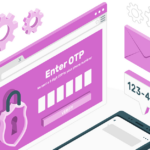Securing Your Business: The Vital Role of a Zero-Trust Policy
Published: September 7, 2023
In today’s hyperconnected world, where data breaches and cyberattacks have become a daily occurrence, establishing digital trust is paramount for businesses of all sizes and industries. One of the most effective ways to achieve this is by implementing a Zero-Trust Policy.
Understanding Digital Trust
Digital trust refers to the confidence and assurance that users, customers, and partners have in the security and reliability of an organization’s digital systems, services, and data. In an era where personal and sensitive information is stored, transferred, and accessed digitally, trust is the cornerstone of successful business relationships.
Digital trust encompasses various aspects, including:
1. Security: Users must trust that their data is secure and protected from unauthorized access, breaches, and cyber threats.
2. Privacy: Organizations must respect and safeguard users’ personal information, adhering to privacy regulations and best practices.
3. Reliability: Services and systems must be available and perform consistently, ensuring minimal downtime and disruptions.
4. Transparency: Being open and transparent about data practices, security measures, and incidents builds trust with users.
What is a Zero-Trust Policy?
Zero-Trust is a cybersecurity framework that assumes that threats can exist both inside and outside an organization’s network. In other words, it operates under the premise that trust should not be automatically granted to anyone, whether they are within or outside the organization. Instead, Zero-Trust requires continuous verification and validation of every user and device trying to access resources.
Key principles of a Zero-Trust Policy include:
1. Verify Identity: Authenticate users and devices rigorously before granting access to any resource. This can include multi-factor authentication (MFA) and strong password policies.
2. Least Privilege Access: Limit access rights for users and devices to the minimum required for their roles. This reduces the potential damage of a compromised account.
3. Micro-Segmentation: Divide the network into smaller, isolated segments to contain potential threats and limit lateral movement within the network.
4. Continuous Monitoring: Continuously monitor user and device activity to detect anomalies and potential security breaches.
5. Contextual Access Control: Make access decisions based on real-time context, including user behavior and the security posture of the device.
6. Application Whitelisting: Only allow approved applications to run on your network, reducing the risk of unauthorized or malicious software compromising your systems.
6 Reasons Every Business Needs a Zero-Trust Policy
1. Mitigating Insider Threats: Traditional security models often assume that employees within the organization are trustworthy. However, insider threats, whether malicious or accidental, can pose a significant risk. Zero-Trust helps minimize this risk by enforcing strict access controls and continuous monitoring.
2. Protecting Against External Threats: With cyberattacks becoming increasingly sophisticated, perimeter-based security is no longer sufficient. A Zero-Trust Policy ensures that even if a threat breaches the outer defenses, it has limited access and movement within the network.
3. Compliance and Data Privacy: Many industries have strict regulatory requirements regarding data privacy and security. Implementing a Zero-Trust Policy can help businesses meet these compliance standards and avoid hefty fines.
4. Adapting to a Changing Work Environment: The modern workplace is dynamic, with employees accessing resources from various locations and devices. Zero-Trust enables secure access regardless of the user’s location or device, supporting remote work and BYOD (Bring Your Own Device) policies.
5. Enhancing Customer Trust: When customers trust that their data is secure with your organization, they are more likely to engage with your services. A Zero-Trust Policy demonstrates your commitment to protecting their information.
6. Future-Proofing: Cybersecurity threats are constantly evolving. A Zero-Trust Policy provides a robust framework that can adapt to new and emerging threats, making it a sustainable long-term solution.
Digital trust is the bedrock of any successful business in today’s digital age. Implementing a Zero-Trust Policy is not just a best practice; it’s a necessity. By adopting this proactive approach to cybersecurity, businesses can protect their data, maintain customer trust, and stay resilient in the face of ever-evolving cyber threats. Remember, in the world of cybersecurity, it’s always better to be safe than sorry.
Reach Out To Us
Recent Posts
-
 Accent Consulting’s Annual Holiday Party 2024December 11, 2024/0 Comments
Accent Consulting’s Annual Holiday Party 2024December 11, 2024/0 Comments -
 AI-Driven Phishing Scams: How Businesses Can Protect Gmail AccountsNovember 14, 2024/
AI-Driven Phishing Scams: How Businesses Can Protect Gmail AccountsNovember 14, 2024/ -

-

-

-
 Celebrating 22 Years of Excellence and GrowthSeptember 5, 2024/
Celebrating 22 Years of Excellence and GrowthSeptember 5, 2024/ -

Schedule a Free Network Assessment
A network assessment is an in-depth analysis of your current IT infrastructure that provides you with a comprehensive understanding of your existing environment and recommends improvements such as network consolidation, simplification, or automation.
Learn More

